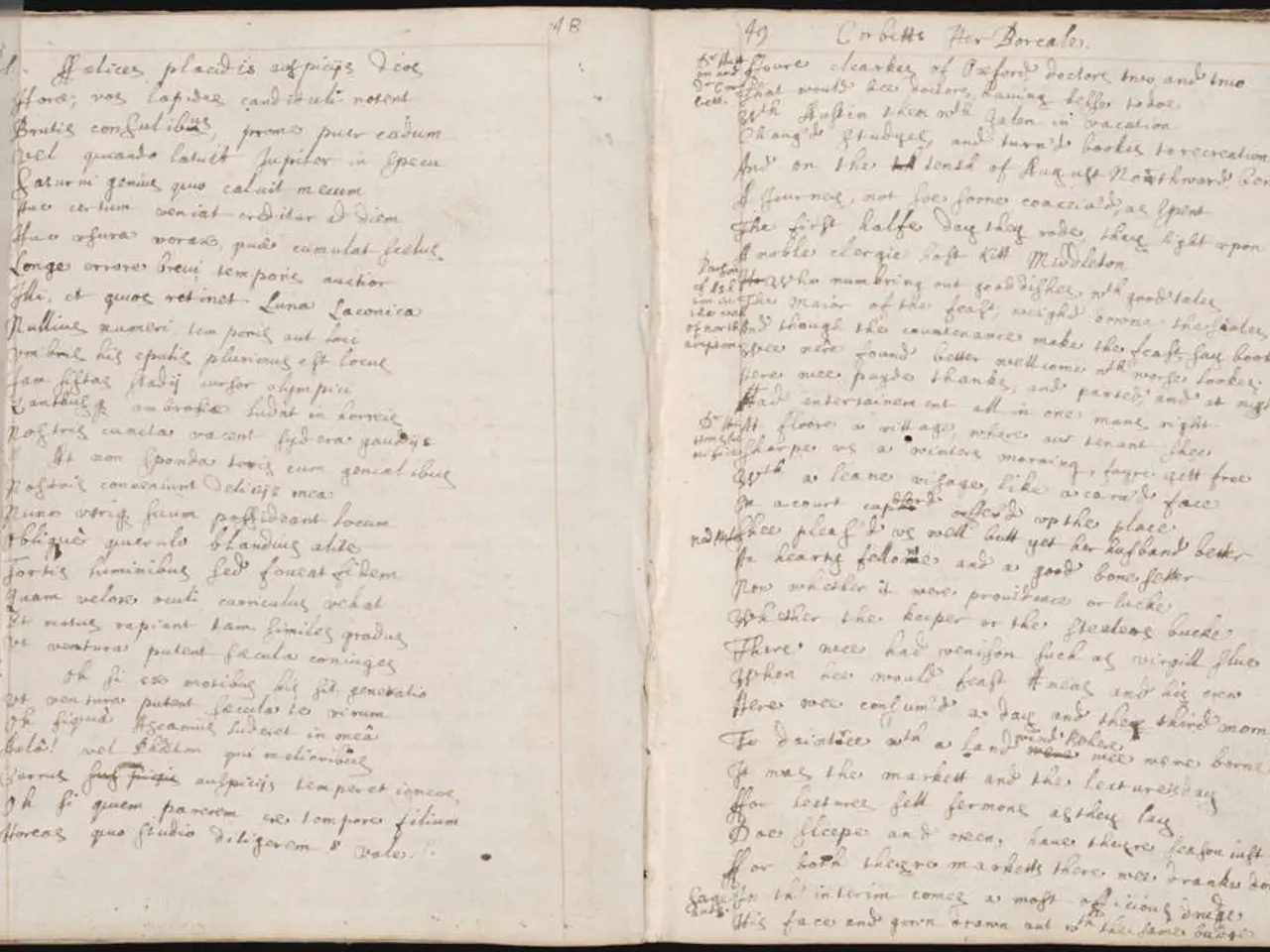Narrowing Your Research Focus in Open-Ended Projects: Strategies to Guide Your Inquiry
In the heart of academic exploration, a student recently embarked on an independent research project through the Office of Undergraduate Research's ReMatch program. The project focused on the language of "othering" in New York City press reports of a June 1848 Paris workers' rebellion.
The student's journey began with a realisation: academic material often deals with "big questions", covering long time frames, seeking to identify general trends with a large sample size, or tackling broad theoretical questions. However, during this project, the importance of a narrow research focus became evident.
A narrow research focus can ensure that research work is doable and satisfying, given due dates. It can help manage and organise research work effectively, especially during quarantine. The student found that a focused approach during the research process can lead to a more efficient and productive outcome.
The impulse to ask big questions is natural and a good way to jumpstart research. However, keeping the question broad can become overwhelming and hinder the ability to meaningfully answer it. Therefore, the student learned the importance of narrowing the question early in the research process.
To effectively narrow research questions for open-ended assignments within a short time frame, the student followed a series of practical steps. First, they identified the general topic and boundaries set by the assignment to avoid topics too broad or too narrow.
Next, they generated specific questions by zooming into particular variables, dimensions, locations, populations, or time periods relevant to their topic. They considered the availability of resources through quick preliminary research to ensure their question could be well-supported.
The student then phrased their question precisely, often as a "how" or "what" question, focusing on a clearly defined issue or relationship. They kept their audience and assignment purpose in mind to guide the level of depth and complexity needed.
Finally, the student used frameworks or mnemonics like PICO (Population, Intervention, Comparison, Outcome) or ECLIPSE for policy questions to set clear boundaries and guide question formulation.
Being flexible and adjusting the question to available information is important. The student found that a narrow research focus is not a suggestion to cut corners or jettison big questions. Instead, it can serve as an anchor for a larger argument and contribute to a comprehensive and extrapolated argument.
Trust in the richness of primary sources. A single primary source can furnish a surprising amount of information to analyse. The student found that close-reading a small number of sources may be more fruitful in a short time frame than chasing hundreds of sources to answer a broader question.
Reading relevant survey books and their introductions and conclusions can help determine relevance to the work. The professor's research paper assignment sometimes lacks a specific prompt, but the student found that Endnotes can provide a sense of which primary sources to consult.
Personal interest should drive the research for a specific question. The student found that the possibilities for paper topics seem infinite, but a well-defined and narrow research question is the key to effective inquiry and a meaningful investigation within limited time.
[1] Purdue OWL. (n.d.). Narrowing Your Topic. https://owl.purdue.edu/owl/subject_specific_writing/writing_in_the_disciplines/history_and_political_science/narrowing_your_topic.html
[2] University of California, Berkeley. (n.d.). Narrowing Your Research Topic. https://guides.lib.berkeley.edu/c.php?g=333619&p=2237350
[3] University of Illinois at Urbana-Champaign. (n.d.). Narrowing Your Research Topic. https://www.library.illinois.edu/research/narrowing-your-research-topic
[4] University of Virginia. (n.d.). Narrowing Your Research Topic. https://guides.lib.virginia.edu/c.php?g=320725&p=1982495
[5] University of Pennsylvania. (n.d.). PICO and PICO-Plus Mnemonics. https://guides.upenn.edu/c.php?g=353638&p=2316351
The student's senior thesis and the junior paper are prime examples of undergraduate research in education-and-self-development, where learning and personal-growth are fostered through focuses on specific research questions. The student found that narrowing research questions leads to efficient and productive results, as a focused approach can manage and organise research work effectively, leading to clearer research outcomes. As the student embarked on the project, they recognized the need for a narrow research focus over answers to broad questions, and followed practical steps to narrow their question for their research, including considering resource availability, phrasing the question precisely, and using frameworks like PICO to guide question formulation.




